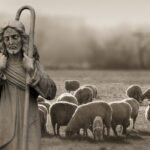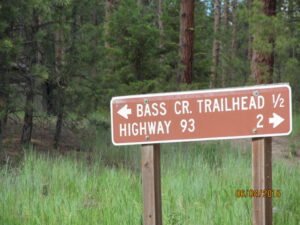As members of the Christian community, we lead our daily lives in our Christian walk. Have we ever considered ourselves to be a theologian? Who needs theology anyhow? We all have our beliefs, but are our beliefs based on deep Biblical studies or on what we were told as a child? “Theology is any reflection on the ultimate questions of life that point toward God. Hence both the Bible teacher and the anonymous letter writer are theologians.”1 Whether we have thought about it or not we all are theologians. We are either striving to understand God and His great commission of preaching the gospel to the world, or we have made a theological decision to not follow God. Both are theological decisions.
In the book, Who Needs Theology five separate types of theologians are defined. Which one of the five are we?
- Folk Theology. …” Unreflective believing based on blind faith in a tradition of some kind.”2 This is where most people are in their theology. They grew up with family “religious” traditions and accepted them as fact without any study or proof that said traditions are scriptural. Christmas, Easter, Halloween are examples of traditions most people grow up with but have never investigated for scriptural fact.
- Lay Theology. “Lay theology appears when ordinary Christians begin to question folk theology with its childish, simplistic clichés and legends. It arises when Christians dig deeply into the resources of their faith, putting mind and heart together in a serious attempt to examine and understand that faith.”3 Church going people who genuinely want to know their Bibles and are willing to study to their educational abilities.
- Ministerial Theology. …” Reflective faith as practiced by trained ministers and teachers in Christian churches.”4 Ministerial theologians have some form of formal education and the ability to draw on resources such as printed sources. Most practice an extensive use of concordances and commentaries with a good historical perspective of the age of the Bible and the culture in which it was written.
- Professional Theology. The professional theologian is a person whose vocation involves studying the tools mentioned in the previous paragraph and instructing lay people and pastors in their use.”5 Professional Theologians vocation is Bible Study, teaching and educating all those who desire to learn God’s Word. They often are the professors who train the ministry at seminaries.
- Academic Theology. “This is a highly speculative, virtually philosophical theology aimed primarily at other theologians. It is often disconnected from the church and has little to do with concrete Christian living.”6 Academic theologians spend their time studying what other theologians have stated and then discuss (argue) about it. Academic theologians do not have to be religious in any way, they are simply academics studying a field of thought.
Which theologian are we? Do we just grow up and believe what we have been taught from youth and never study whether it is fact or fiction (Folk Theology)? Are we genuine believers who want to know the Bible and do our best to study (Lay Theology)? Do we have some course work and the theological tools to study deeper into our beliefs and pass this information on to others (Ministerial Theology)? Is your vocation theology (Professional Theology)? Do you engage in speculative academic discussions delving deep into ancient thought (Academic theology)?
Consider which theologian we are. We should do our best to improve our study skills as we become the best Christian theologian we can be. “Who needs theology? The Christian church and individual Christian who seek to grow in their faith need lay, ministerial and professional theology… Folk theology and academic theology are of little value.”7 The apostle Peter tells us, “ but grow in the grace and knowledge of our Lord and Savior Jesus Christ. To Him be the glory both now and forever. Amen.” (II Peter 3:18 KJV). Growth takes good study.
Study hard as we are all budding theologians.
- Stanley J. Grenz & Roger E. Olson, Who Needs Theology?: An Invitation to the Study of God (Leicester: Inter Varsity Press, 1996), 13.
- Grenz and Olson, 27.
- Grenz and Olson, 29.
- Grenz and Olson, 31.
- Grenz and Olson, 31-32.
- Granz and Olson, 33.
- Granz and Olson, 34.























